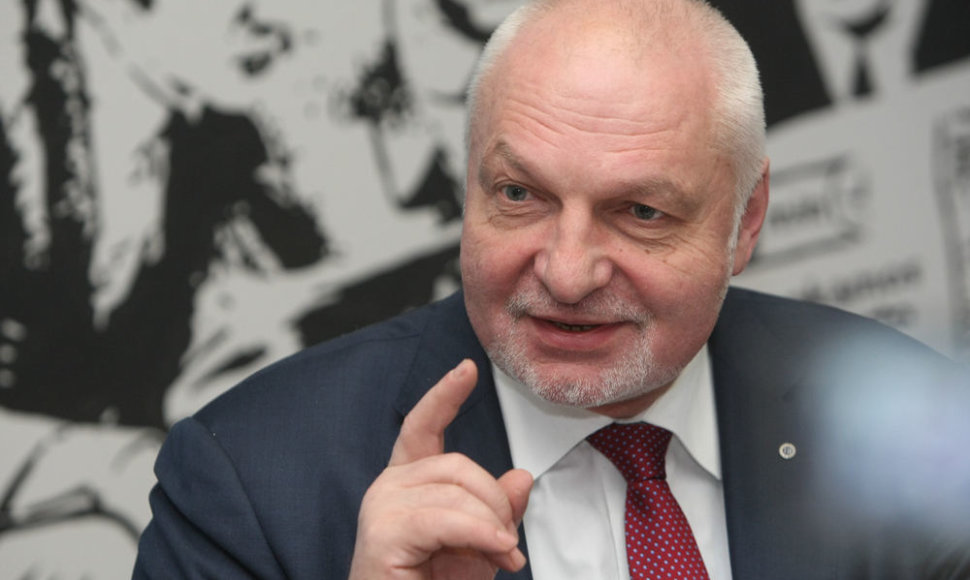The minister told BNS that conformity of the Astravyets NPP environmental study to the Espoo convention topped the agenda of his Thursday's meeting with Belarusian Ambassador to Lithuania Vladimir Drazhin.
"I would say that the positions we hold are slightly different. It seems to us that the Belarusian side has not answered all questions raised by the Lithuanian side," Mazuronis said.
"Our position is that we want the issue to be discussed in line with the convention, i.e., to receive answers in written form to the questions we have asked, followed by a discussion with the society and expert meetings in the third phase," said the Lithuanian minister.
In Mazuronis' words, Drazhin pledged to forward the position to the Belarusian environment minister.
"One of the unanswered questions is that we want the Belarusian side to give us answers as to the phase of the construction process," Mazuronis told BNS in comment of the progress made in the Astravyets NPP project.
According to information provided by the Lithuanian Environment Ministry, the study of environmental effects of the Belarusian power plant, which is mandatory under the Espoo convention, has not yet been completed.
"Belarus has not yet provided the information we requested back in 2009 in connection to the NPP construction site selection criteria, performance of seismic tests, cooling of the power plant, possible effects to Lithuania's territory and residents, the River Neris, management of spent nuclear fuel, and our society has not been familiarized with the project," the ministry said in a press release.
According to the communiqué, the Espoo Convention Implementation Committee in Geneva "is currently discussing whether the Belarusian actions in the nuclear power plant project in the Astravyets site are in keeping with international standards."
The Belarusian nuclear plant project is currently developed close to the town of Astravyets, which is some 50 kilometers from the Lithuanian capital. With financial assistance from Russia, Belarus expects to complete the project by 2018. Meanwhile, Russia is building another nuclear plant in its Kaliningrad region wedged between Lithuania and Poland, which it expects to be operational by 2017.












